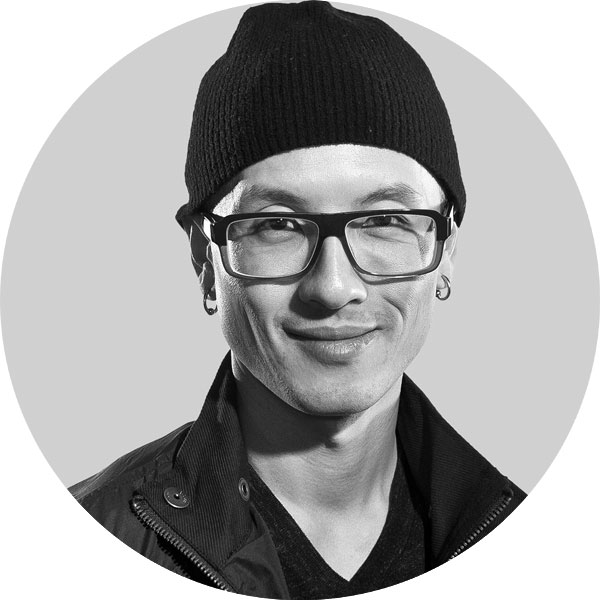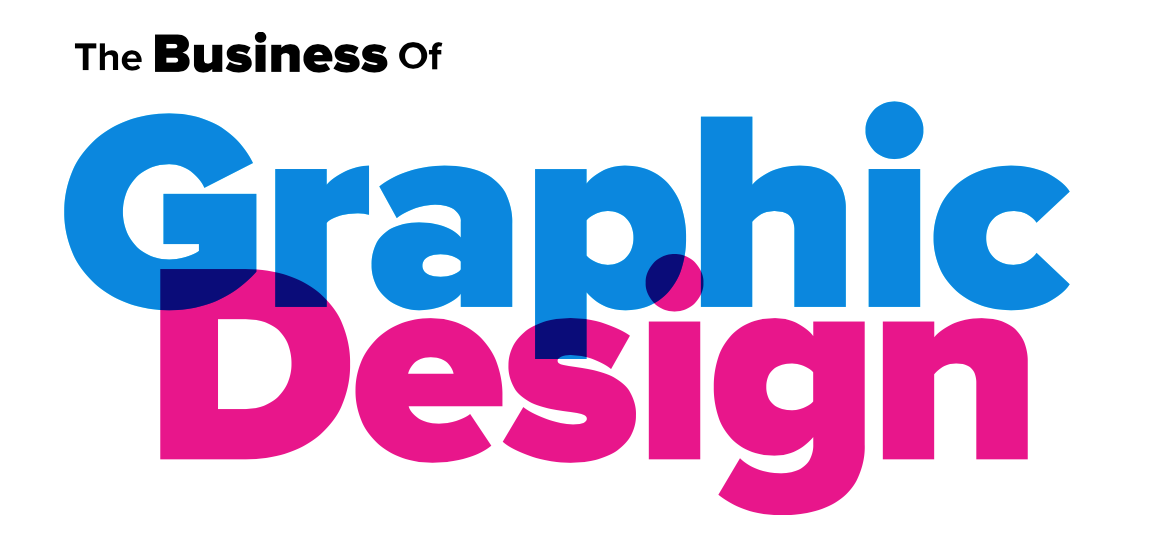
Part 1 of 2: Interview With
Chris Do is founder of Blind as well as The Futur. He has worked for a long list of household name brands such as Sony, Nike, Google, Audi, NFL, Wells Fargo, and X-Box, just to name a few. In part one of the interview we will hear Chris talk about how he got into design, some of his thoughts about how to be better at business through personal change, and how he grew from a solo act into owning a business that employees creatives as well as supporting business professionals that keep Blind running.

I got into design mostly by accident. I knew all my life that I was interested in creative things, but I didn’t allow myself think of design as a career option. I thought that meant starving as an artist, the kind you see painting your portrait at a fairground or something like that. When I started applying to colleges I was rejected from UCLA, UC San Diego, and Cal State, San Luis Obispo. It was around this time, that I started to work as a freelancer for a silk-screening shop. I had developed a tiny little bit of a reputation as a person who could illustrate. I wasn’t hired based on my portfolio, but probably just moxie and the fact that I showed up on time. I worked for this gentleman named Brad Chaboya, and he had me ink over his drawings. He was running the silk-screening shop making T-shirts the old fashion way. Through this experience I was introduced to a graphic designer and that’s when I began to understand that there was a professional world out there. I realized that people are making a living designing things with their minds and making things with their hands and their computers. This realization narrowed my focus and I knew I needed to get into a good design school. I set my sights on Art Center and I got in.
I barely got through Art Center. I’m not saying anything ill about the school or the experience, but I just felt that at a certain point that I had learned everything I needed to learn and I wanted to get out into the real world. I was starting to feel the weight of my debts and loans as each semester went by. I don’t come from an affluent background, I’m not saying that we were poor, but I was starting rack up quite a bit of debt on my credit cards, and I just knew I had to end it. In my last semester I told my mom I was really thinking about dropping out. I told her, “I’m feeling burnt out, I think I’m done with school.” She said, “Honey, it’s just one more semester, this is a decision you may regret for the rest of your life.” She wasn’t saying that I needed the degree to survive in the world, she was saying one more semester and you won’t have to regret this moment. I pushed through and finished. That was it for me. Sometimes I look at people who have masters degrees, or even PHDs or Honorary PHDs and I think, “Wow, you are committed to learning my friend.” I’m a hustler, I want to get out into the real world, I want to put my experience to the test, I want to make some money and I want to see if what I learned is usable in the real world.

I started to work professionally right before I graduated from school. A friend encouraged me to apply to a job at an advertising agency. So I collected four pieces to send as examples of my work, put them in a FedEx box, and sent it in and I got the job. It created this belief in me that I was invincible. Maybe that wasn’t the best attitude to have getting started in my professional life. This was in 1995, and I was making $45,000 dollars a year while going to school. Within a couple of months, my boss offered me more than double my salary. Life was easy, work was easy, and maybe all this hard work and preparation had gotten me to this point and I wasn’t going to have to worry about anything anymore.
The Company was flying me back and forth from school to Seattle. I was a twenty something year old kid, jet-setting, jumping from one city to the next to work on really big projects. Ultimately, I didn’t feel that this was a good fit for me. I loved to design. As an art director I wasn’t doing any of the hands-on work anymore, so I quit the job. I wasn’t really thinking about the job market at the time because my first experience in the professional world was so easy. Think about it, the first time I tried to find a job, I put 4 pieces together, I get the job, and all kinds of doors open for me. I skipped all of the on-campus interviews and when I graduated from school, I didn’t know what I was going to do. I called a friend who worked at Epitaph Records and he was able to help me get hired at Epitaph making $30,000 a year. At this point I had taken at least a $10,000 pay cut and I thought to myself, “I’m a shrewd financial person. I walked away from more than double my new salary to work for a punk rock record label.” Long story short, that didn’t work for me either, so I was back on the market as a freelancer.
“People often say “I can’t do this, I can’t do that” and all I can say back to them is, “Tell me what do you do in your free time.” Where you spend your time is what you become.”
There are a couple of things that happened to me that really allowed me to grow my practice from being a solo entrepreneur into a person who brought in a couple of freelancers, and then growing into having several employees. I think these kinds of opportunities are built upon relationships and how you treat people. The ad agency that I worked for was sending me work. They hired me to do commercials and other projects and I kept in touch with the people that I worked with there. Some of the people who worked at Epitaph records wanted to hire me to design album covers for them and that continued as well. These two relationships were really important, but the last piece, as I was getting started, was submitting my work to be included in the Adobe After Effects CD Rom. This was right around version 1.0 for Adobe after they bought After Effects from CoSa. That CD was sent everyone who used After Effects and it became a surprisingly great lead generator for me. Freelance work was going well and during this time one of the greatest impacts on my career took place; I had the opportunity to meet motion graphic artist, Kyle Cooper. A good friend from school was dating him and she introduced me to him right about the time that he was finishing the groundbreaking intro sequence for the movie Se7en. That piece just blew my mind and I knew that this kind of work, storytelling through motion and visuals, is what I needed to be doing.
After a while, I was getting more work than I could handle by myself. I needed help and the first person I called was my former roommate. When you’re starting out you hire the people you know. I called him and asked him “Hey, if you’re not busy I’d love to work with you.” I knew what it was like to work with him and I knew whatever skill gap there might be, we could close through collaboration, team work, and art direction. I asked him how much money he needed to earn and he gave me an amount. It was a lot less than what I was charging. Things worked out perfectly. I paid him what he wanted and he did what I considered to be about 80% of the work. I could come in at the end of a project and provide some art direction, touch up the files a little bit, and send them out. I was able to do this for multiple clients and as I grew I brought more and more friends from school in.

I think initially that when you grow your team the people you hire will be mirrors of yourself. You’re going to hire creative people and then eventually you start to figure out that you don’t want to spend your time on all the business stuff. So you bring in a producer to coordinate with the client, to bid the jobs for you. You teach them how you like to bid and then they end up becoming a liaison between you and the client. You have to hire somebody to answer the phone and help to deal with office stuff, so you hire an office manager and maybe a receptionist. We brought in IT people because there are too many machines and I don’t know how to set them all up. So eventually you might hire someone who is half creative and half technical so they can do a little bit of both and help you with some of the technical stuff. Now, as a fully functional and stable company we have an in-house book keeper, a CPA, a financial adviser, an executive producer that does sales, and client relationship management. I have a digital director and I have producers, coordinators, and assistants; so, the full gamut essentially.
As a business owner, I kind of see myself as a fair and benevolent dictator. That’s something you might laugh at but that’s my management style. I’ve had several failed partnerships before, and because of that experience I maintain complete control. I’m not saying that I’ve tried it just once and it didn’t work. I’ve tried it several times and it’s not worked each and every time. Now I know, I like to move fast, I like to behave in a certain way, and I don’t want to have partners involved in helping me make decisions. I’m ready to take the risk, I’m ready to take the accolades, I’m also ready to receive the blame if it goes wrong, and that’s how I work. I make decisions. I try to pay a competitive salary. The way that we do this is when we have profitable years, and hopefully more profitable than not profitable years, I share the wealth. My wife and I, we look at what’s profit, we take a chunk out and divvy that amongst people based on seniority, contribution, on general disposition, or growth potential. Some years we’ve been able to give bonuses in the tens of thousands of dollars to individuals and that’s how we reward people. So, anyone working with me won’t get arrested if I do anything improper and they don’t have to deal with the stress of running a business. Basically, the only stress, is the stress I feel when we don’t have a good year and I have to go to my employees and tell them “We’re just lucky to have jobs this year, guys. I’m sorry there isn’t more.” Those are the times that I feel the worst. Conversely, when things are going really well it can be a little stressful for me because I’m trying to figure out how much more should I give? What is reasonable? What is not reasonable? Sometimes you give someone a bonus and then two months later they leave, but I guess they’ve earned it at that point.
“We are the average of the five people we spend the most time with. In very harsh terms, you need to lose some of your friends who are negative, who are not productive, or not goal driven because you’re going become a little bit of them and they a little bit of you.”
Advice I would give anyone entering into the creative field or if they’re switching careers late in life and trying to figure out what it is they want to do; you need to know that you already have what you need to succeed. Know that after you stop looking at external factors, blaming the economy, where you live, your skill set, what school you went to, the lack of a network, etcetera, the thing you have to come to grips with is that after all is said and done, the only person getting in the way of your success is you. It’s the person you look at every single day in the mirror. People often say “I can’t do this, I can’t do that” and all I can say back to them is, “Tell me what do you do in your free time”. Where you spend your time is what you become. If you’re sitting there watching Netflix or clicking through random videos on social media instead of working on design, or learning about a business concept, or going out of your comfort zone and meeting people in the real world, attending a conference or doing a talk, anything like that. Well, that’s what you become. If you want to know who you are, look at what you do in your spare time. It’s going to tell you a lot about yourself. The other thing I would tell you is that we are the average of the five people we spend the most time with. In very harsh terms, you need to lose some of your friends who are negative, who are not productive, or not goal driven because you’re going become a little bit of them and they are going to become a little bit of you.

We have to evaluate who we spend time with and what we do with our own time. The last little piece of advice is that when you have clear goals you’ll become more efficient. Even for me in this time where I feel that I have a lot of support and a lot of momentum moving forward, there are days when I feel a little overwhelmed. Days where I have to book an appointment with another guest, or have to research something, or have to turn out a deck and have write two pieces of content, and I’m going to host something, or something; that’s a lot of stuff for me to process. Sometimes I get frazzled. I get that angst and feel like I’m all twisted up on the inside. The way I resolve that almost every single time is to take a deep breath and write on a piece of paper the three most important things I have to accomplish that day. The rest of it can wait. So if you’re getting pulled in a thousand different directions through open emails, your twitter notifications, YouTube, etc. and your being pulled all over the place, close those things down. Not in an angry way, just limit temptation and focus up on your goals. Write down the top 3 goals for that day. When you have clear goals everything else becomes much easier.



